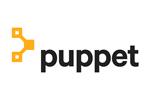TMCnet News
2021 State of DevOps Report Finds It's Not Tech but Culture that Keeps Teams Stuck in the Middle of their DevOps EvolutionPORTLAND, Ore., July 20, 2021 (GLOBE NEWSWIRE) -- Puppet, the industry standard for infrastructure automation, today released the findings of the 2021 State of DevOps Report. This year, over 2,650 IT, development, and information security professionals took the survey, providing insight into the chasm between organizations with highly evolved DevOps practices and those whose DevOps evolution has plateaued. Puppet conducted the first State of DevOps Report ten years ago when DevOps adoption was not ubiquitous. A decade later, 83 percent of IT decision makers report their organizations are implementing DevOps practices to unlock higher business value through better quality software, faster delivery times, more secure systems and the codification of principles. However, within that 83 percent are distinct cohorts of organizations whose success with DevOps is contingent upon a number of factors, revealed in the report. The 2021 report found that many organizations in the middle stages of their DevOps evolution have plateaued. Among these mid-evolution teams, cultural blockers remain the biggest hurdle to reaching DevOps success. The most common culture blockers at the mid-level include a culture that discourages risk (21 percent), unclear responsibilities (20 percent), de-prioritizing fast flow optimization (18 percent), and insufficient feedback loops (17 percent). Report findings also revealed:
To observe the ten year anniversary of the report, Puppet invited a wider group of DevOps influencers to respond to th data and build on recommendations for what organizations can do to climb out of the sticky middle. Contributors include the authors of the Team Topologies model, which has been immensely influential in the industry. “A standout finding from the report is the importance of team identities; organizations with less ambiguous team names with more clearly defined team responsibilities are more likely to be more highly evolved in their DevOps journey,” said Nigel Kersten, Field CTO at Puppet. “The title ‘DevOps team’ is misleading, as it allows many organizations to assume that having a DevOps team means they are doing DevOps correctly. We recommend less ambiguously named stream-aligned and platform teams, as seen in the Team Topologies model, which create a more well-defined path to achieving DevOps success at scale.” “In ten years, we've gone from hype to practice in the way technology is delivered, all with the data to show what we've learned along the way. That's some quality iteration,” said Michael Stahnke, VP of Platform, CircleCI. “The final stage of DevOps evolution is often the building of a highly leveraged platform and team structure, incorporating self-service capabilities beyond infrastructure. When it's really done well, the word ‘DevOps’ tends to fall away as it's just how work is happening.” Further key determinants for mid-evolution organizations to achieve DevOps success at scale include a successful platform team approach, organizational buy-in from both managers and practitioners, a strong automation practice, and a willingness to accept risk and invest for the future. Learn more about the why and how in Puppet’s State of DevOps blog post. For every person who completed the 2021 State of DevOps survey, $5 was donated to the National Coalition for the Homeless, the World Central Kitchen, and the UNICEF COVID-19 Solidarity Response Fund. We donated additional funds, provided by our generous sponsors, bringing our total contribution to $45,000. *Report Methodology Supporting Quotes “There will always be teams that are doing something unique and off the beaten path,” said Carl Timm, Senior Director of Product Marketing at Armory. “Cultivating an innovation mindset means giving them the freedom to create without too many constraints. While standardization can help with operations and compliance, it's more important to be deliberate about creating space for teams to explore and create, which extends to tooling. This report does a fantastic job of both reinforcing this notion and showing why it is so important.” “Using cloud technologies or agile practices alone is not enough to move organizations from mid-level to high-performing,” said Matthew Skelton, co-author of the book Team Topologies. “The 2021 State of DevOps Report from Puppet shows that team identities and clear interaction paradigms matter. These and other principles and patterns from Team Topologies are helping organizations in every sector and geography become more high performing.” “Implementing DevOps practices on an enterprise scale will require creativity and patience in devising changes to the way teams plan, build, test, deploy, and manage software," said Ali Siddiqui, Chief Product Officer at BMC. “This requires minimizing organizational friction and balancing technology with the human expertise needed to manage change. Doing so will ensure a successful DevOps transformation that can support the evolution to an Autonomous Digital Enterprise.” “It is not very surprising to see a theme emerging this year about the difficulty of going from a mid to high level of DevOps evolution,” said Anand Ahire, Head of DevOps Business and Product Management at ServiceNow. “We find early success stories of DevOps adoption in a few individual teams, but progress tends to slow down at the ‘teams of teams’ and at the enterprise level. Oftentimes that is because the need for speed at the team level is at odds with the need of risk and compliance management at the enterprise level, something that I believe can only be resolved through policy-based automation of change management processes.” Additional Resources
About Puppet Media Contact Zibby Keaton Head of External Communications @ Puppet [email protected] |

